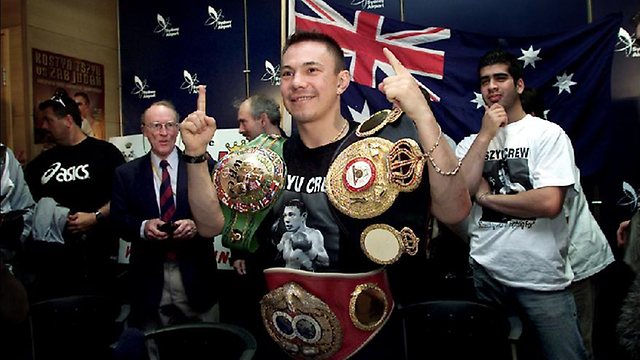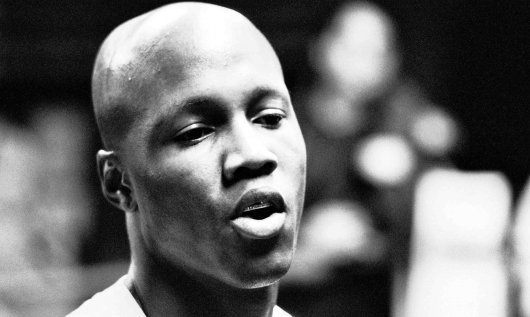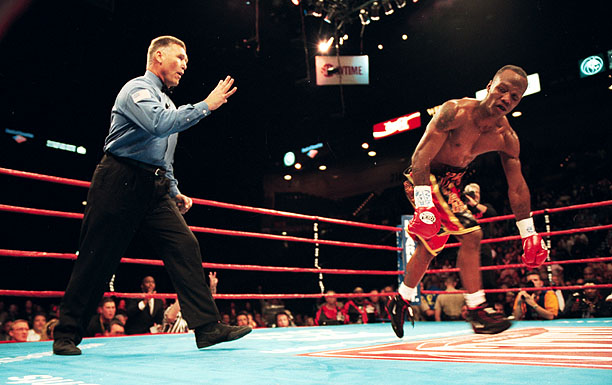The concept of ‘unification’ holds a special significance for boxing enthusiasts. It evokes memories of a bygone era, where each weight division had a single champion who was willing to face all challengers, giving real meaning to world titles.
Although not one of the original weight classes, the super lightweight division boasts a storied past. Legendary fighters like Wilfred Benitez, Aaron Pryor, Nicolino Locche, and Antonio Cervantes have all held world titles in this class. However, until then, the championship had never been unified since the establishment of major alphabet organizations (WBC, WBA, IBF, etc.). The last undisputed titlist at 140 pounds dates back to 1967.
Everything changed when two contrasting boxers clashed to determine the one-and-only light welterweight champion of the world.
Kostya Tszyu, hailing from Serov, Russia, but fighting out of Sydney, Australia, possessed a 27-1 pro record, the WBC and WBA world titles, and a powerful right hand. On the other hand, Zab Judah, with his slick and undefeated style, held the IBF strap and a 27-0 record.
Prior to the bout, the Brooklyn-native Judah engaged in his usual trash talk, belittling his opponent and dismissing Tszyu’s stand-up style. “Tszyu’s style suits me perfectly. He’s strong, standing straight, and coming forward. His style resembles Swiss cheese: full of holes.”
In contrast, Tszyu, a man of few words, was a thoughtful fighter who meticulously analyzed his opponents before each fight. He emphasized that he had studied Judah enough to secure a victory. “I’ve studied Judah and know how to defeat him. We both want to prove we’re the best. The time for talk is over; we have to prove who the true champion is.”

On the weigh-in day, after enduring weeks of taunting from Judah, Tszyu demonstrated his mental acumen by asking about Judah’s newborn daughter, unsettling his opponent. Tszyu later clarified his strategy behind this unconventional move. “Boxing is as much mental as physical. I inquired about his daughter, catching him off guard. I care for kids, and his daughter is Destiny; I did my research. He was taken aback by the question. It affected him before the fight, leading to his downfall.”
Despite the awkward weigh-in incident, Judah was heavily backed to win by many, with his fast and slick style expected to outshine Tszyu’s power punching. However, even the few who rooted for Tszyu could not have predicted what would transpire.

The Tszyu vs. Judah fight unfolded as expected initially, with the quicker Judah utilizing his speed and landing significant blows. Within the first minute, Judah landed a massive left uppercut that staggered Tszyu against the ropes, followed by a flurry of punches before Tszyu clinched. Judah convincingly won the first round, making it seem like his elusive boxing style would overwhelm Tszyu. Yet, a turning point was imminent.
Early in the second round, Tszyu persistently pursued Judah without much success. Judah maintained distance and landed sporadic shots, but Tszyu began finding his pace. With only seconds left in the round, Tszyu’s right hand connected perfectly with Judah’s chin, knocking him down. Despite Judah quickly rising to his feet, he was visibly shaken and wobbled around before crashing to the canvas once more. Referee Jay Nady promptly called an end to the fight.

The aftermath of the fight was met with controversy. A furious Judah disputed the stoppage vehemently and expressed his frustration by physically confronting the referee and objects around him upon realizing he had lost both his perfect record and world title belt.
While history had been made that day, it was not the predicted outcome. Kostya Tszyu, not the highly praised Zab Judah, unified the 140-pound weight class with a remarkable, albeit contentious, stoppage victory.
In a post-fight interview, Tszyu, with a radiant smile, responded to a query about a potential rematch by echoing Judah’s earlier sentiment, “Do you recall his ‘winner take all’ remark at the press conference? I respond the same way.” — Daniel Attias






















